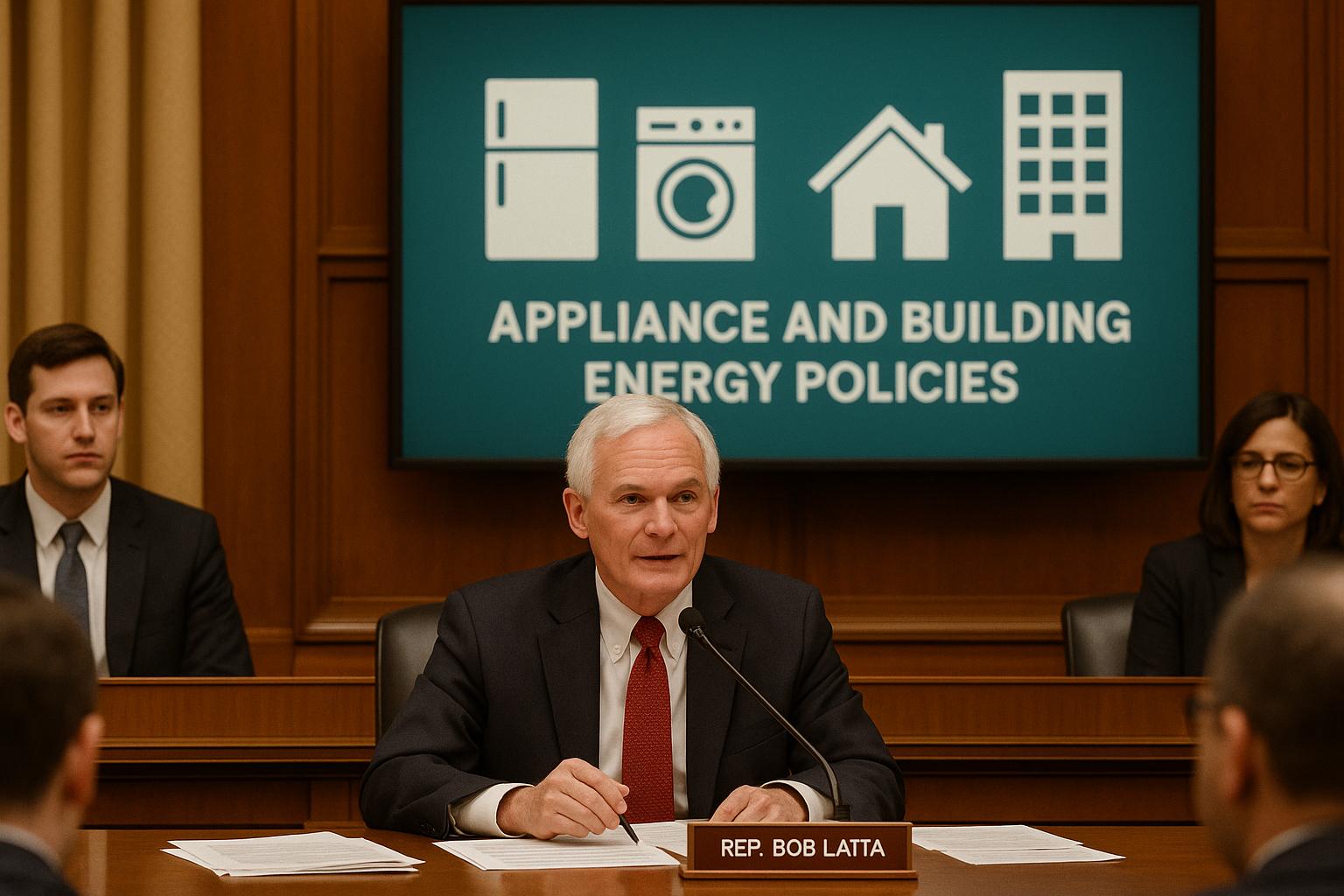Rep. Bob Latta chaired a hearing on appliance and building policy affordability, choice and security.


WASHINGTON, D.C. – A congressional hearing led by Congressman Bob Latta (OH-05), Chairman of the Subcommittee on Energy, tackled key issues surrounding energy policies for appliances and buildings. Titled Building the American Dream: Examining Affordability, Choice, and Security in Appliance and Buildings Policies, the hearing brought attention to reforming the Department of Energy’s (DOE) energy efficiency standards.
Chairman Latta expressed concerns about the effectiveness and direction of these policies over the past decade. "Over the last decade, it has become apparent that the statutory process for energy efficiency standards is broken. We must reform the process to restore consumer choice, appliance affordability, and true energy savings as the foundation of DOE’s Appliance and Equipment Standards Program", he said. He further emphasized that while energy efficiency is widely supported, other priorities, such as building codes and restrictions on fossil fuel use, may have overshadowed its core benefits.
Congressional participants raised concerns about federal overreach in energy efficiency policies, particularly how they might limit consumer choices. Congressman Randy Weber (TX-14) highlighted how a one-size-fits-all approach could fail to account for differences among homeowners and their needs. "There’s no reason why the Department of Energy, or anybody else, should be mandating that Texans have to have a certain efficiency. No two homes are alike. No two homeowners are alike, and we all know our own individualized circumstances and preferences better than any one size fits all regulatory process", said Weber. He also criticized the DOE’s upcoming furnace rule, slated to take effect in 2028, for potentially restricting options that might better suit certain homes.
Congressman Troy Balderson (OH-12) raised questions about the broader economic consequences of local energy decisions, such as phasing out natural gas, and how they could ripple across state lines. He asked, "How do decisions by local officials to phase out natural gas use, which may seem like local, isolated decisions, negatively impact consumers and consumers in other regions or other states?" Mr. Steffes, responding to the inquiry, explained, "This is a straightforward question of supply and demand. For the customers that I serve, a lot of their needs are heating. Natural gas heating, hot water heating, cooking. If you mandate in our communities that no more natural gas will be used, then those customers are going to find another way to provide heating. They’re not going to go without heat. They will use electric heat that will add additional demand to the electricity market. While it’s very difficult to add supply, additional demand without supply increases prices."
The hearing also touched on specific government regulations on home appliances, with Congressman Russell Fry (SC-07) expressing frustration over federal mandates on everything from dishwasher cycles to showerhead water flow. "Instead of empowering families, the federal government has been telling the people how long that their dishwashers can operate and what kind of stove they can buy, and even how much water that the showerhead could use", Fry stated. He spotlighted his proposed bill, the Saving Homeowners from Overregulation with Exceptional Rinsing (SHOWER) Act, which aims to eliminate some of these regulations and restore consumer autonomy.
Mr. Lieberman, addressing Fry’s concerns, provided historical context to the debate. "Well, actually, the showerhead saga has been going on since 1992. There was the energy policy act of 1992, which originally had these showerhead provisions. Some people don’t like the lower flow. I think it’s quite frankly, a very silly regulation. If the shower is hitting you with too much water, you turn the knob down", Lieberman explained.
Throughout the hearing, committee members stressed the importance of balancing energy efficiency goals with affordability, individual choice, and market realities. With the DOE’s current process under scrutiny, lawmakers and experts alike debated the need for reforms that address both consumer needs and the broader implications of energy policies on the economy.
As discussions on these issues continue, the hearing underscored the ongoing debate over the role of government in shaping energy use in homes and buildings. Lawmakers remain divided on how to align federal energy policies with the interests and preferences of American families.